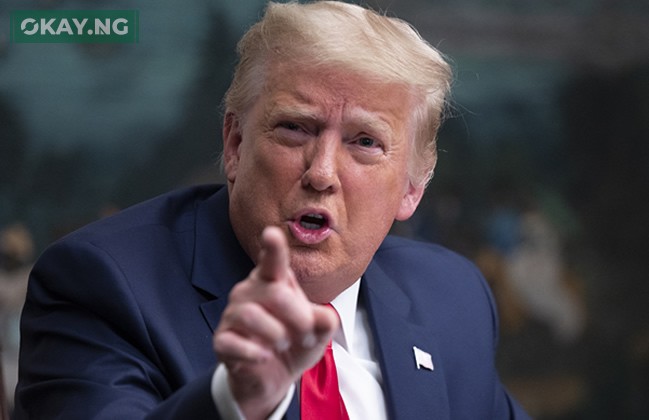President Donald Trump has escalated his confrontation with American universities, threatening to revoke Harvard University’s tax-exempt status amid a growing dispute over the handling of pro-Palestinian student protests. This move follows a series of actions by the Trump administration targeting institutions like Columbia University, where federal grants were cut due to alleged antisemitism on campus.
Trump’s social media post on Tuesday indicated he was “mulling” the revocation of Harvard’s tax-exempt status, citing what he described as “political, ideological, and terrorist inspired/supporting ‘Sickness?'” He did not specify how he would implement this, given that U.S. tax law designates most universities as tax-exempt due to their public educational purpose.
White House press secretary Karoline Leavitt reinforced Trump’s stance, demanding an apology from Harvard for “antisemitism that took place on their college campus against Jewish American students.” She accused Harvard and other institutions of violating Title VI of the Civil Rights Act, which prohibits discrimination based on race or national origin in federally funded programs.
However, terminating federal funds under Title VI requires a lengthy investigation, hearings, and a 30-day notice to Congress, none of which have occurred at either Columbia or Harvard. This has led some professors and students to argue that the administration is conflating legitimate protests with antisemitism to justify an attack on academic freedoms.
Harvard President Alan Garber responded to the administration’s demands with a firm letter, labeling them “unprecedented assertions of power, unmoored from the law.” He argued that demands such as viewpoint diversity audits and the elimination of diversity, equity, and inclusion programs violated constitutional free speech and the Civil Rights Act. Garber emphasized Harvard’s commitment to combating antisemitism while upholding academic freedoms.
“Like Columbia, he said Harvard had worked to fight antisemitism and other prejudice on its campus while preserving academic freedoms and the right to protest.”
Read Also: JAMB Halts Law Admissions in Eight Universities Following CLE Suspension
Following Garber’s letter, the Trump administration’s Joint Task Force to Combat Anti-Semitism announced it was freezing over $2 billion in contracts and grants to Harvard. The administration did not specify which grants were affected, and Harvard has not issued a comment.
Columbia University, which faced similar grant terminations, has agreed to “good faith discussions” with the Justice Department’s antisemitism task force. However, Interim President Claire Shipman stated, “We would reject any agreement in which the government dictates what we teach, research, or who we hire.”
Harvard’s stance has garnered support from peer institutions. Princeton University President Christopher Eisgruber publicly backed Harvard, and Stanford University leaders echoed similar sentiments, emphasizing the importance of defending “the American tradition of liberty” in universities.
“Princeton stands with Harvard,” Princeton University President Christopher Eisgruber wrote on social media, encouraging people to read the Harvard president’s rebuke of the government’s demands.
The escalating conflict coincides with broader legal challenges to the Trump administration’s actions. A U.S. judge recently blocked parts of an executive order targeting law firm Susman Godfrey, and universities are suing the Department of Energy over research funding cuts. Additionally, there are reports of increased interest from U.S. students in studying in Canada due to concerns over funding and visa policies.













